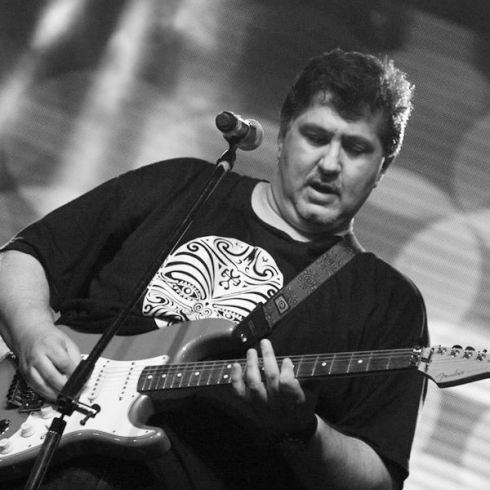
MUMBAI: Independence Rock – India’s iconic rock festival marked its 27th year in November 2012. However, the festival, which is also known as the ‘Woodstock of India’, has gone into a hiatus since then. Being the oldest rock festival in the country, it provided a platform to countless bands that are thriving in the current rock and metal scene. Every major Indian rock/metal act has probably got their recognition after playing as I-Rock, thus making the festival a rite of passage for Indian rock acts. The man who put together this monster of a festival - Farhad Wadia - has endured and surpassed all odds for 27 years to create a much needed platform for both, bands and fans.
In an interview with Radioandmusic.com, Wadia talks about the challenges faced, views on the current scenario and probable revival of the festival.
Excerpts:
I-Rock was there when no one was predominantly looking at the space, now there are many festivals. Will you still like to bring the festival back?
That is the dream and the plan. It will be great to continue for the next 30 years. Currently, due to my move to the US it has taken a backseat, but I am exploring options with like-minded people in India.
How would you reinvent it if you had to bring it back? What would be the scale for it in terms of days, budget and number of artists?
I-Rock has always been about Indian rock music. Over the years, a multitude of international bands have offered to play for free, but I have resisted that temptation. The scale for I-Rock has always been huge. It has enjoyed the largest attendance for Indian bands. It would be a five-city band competition with over a 100 bands taking part, and then culminating in a grand finale in Mumbai over two days, wherein five regional winners would compete for the top winning slot and two pro bands on the 1st Day and five pro bands on the 2nd day . The budget required to do something on this scale would be about Rs 1.5 crores, and that is the main issue; the lack of sponsors who want to support Indian rock talent. Sadly, they happily cough up more than that for international acts.
Do you feel revenue from tickets is a profit making model? Or is here to much dependence on sponsors?
Revenue from tickets can never support the economics of doing a good concert as the Indian audience still shies away from paying large sums for tickets, unless it is a big name western act. Also, the 25 per cent entertainment tax is killing ticket sales, which makes part sponsorship an imminent necessity. Thus, you have to be partly dependent on sponsors.
How easy or difficult is it to get sponsors? Do they put in substantial money?
This is the most difficult part of organising a concert. As a promoter one cannot rely on just ticket sales to break even. They have been known to put in substantial money depending on the proposition available on offer anywhere from a few lakhs to crores, depending on the opportunity.
The last I-Rock festival was free. Was it feasible for you to do that?
Well, yes and no. We did that because we had good sponsorship; we have stopped now because we have no sponsors.
The next time I-rock takes place, will you make it a ticketed event?
Yes, if I am not fully covered by the sponsors, and free if I get good sponsorship. For me I-Rock has never been about money, it has been about the exhilarating feeling of doing the shows and seeing the audience response. However I cannot afford to even lose money.
Rang Bhavan and Chitrakoot were the two venues that were used. Now, there are mills and stadiums turning into musical venues. Would you like to comment about the lack of music venues?
Well that has always been the tragedy that has plagued Mumbai. The closing of Rang Bhavan effectively killed live music performances in South Mumbai. Yes, the mills and stadiums are there, but they cost a fortune to rent.
You must be aware that Slash, Megadeath came to India. Do you think there will be more willingness for other rock legends to come to the country?
Well India has been a Mecca for visiting western talent right from the Early 80’s. Acts far bigger than Slash and Megadeth have played in the country, from – Jethro Tull, Uriah Heep, Europe, Bryan Adams, Deep Purple, Sting and others. I myself brought down one of the biggest acts in 1995 Bon Jovi. Post that, I brought Jethro Tull, Foreigner, Scorpions and America to name a few. So yes, India will always have big names performing as it is an English speaking market wherein there are a huge numbers of fans.
Which bands or artists you would like to bring to India?
Eric Clapton, Nickelback, Adele, U2, Paul McCartney and Reo Speedwagon are some to name a few.
Would you like to try something different considering there are so many options like artist management and others today in India?
I was managing artists in the late 90s and producing Hindi music, so I have done most of the allied bits. I would definitely like to lead an international music label as identifying and producing talent has always been my Strong suite.
You have moved from media to other sectors, is this a permanent goodbye to media?
Well, life has always been an incredible adventure for me and that is what keeps it interesting. However nothing is permanent and if there was a senior role in media that was available I would consider returning.
Where do you see the live scene going in India?
It will always be a roller coaster ride in India for the next few years, but I think it is growing decently.